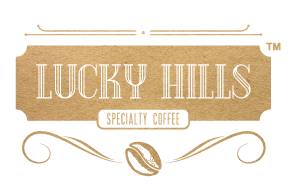Nowadays, talking about coffee goes beyond the enveloping aroma and striking flavor, and expands to a broader scenario – that of sustainability, thus bringing up the concept of sustainable coffee.
This new chapter in coffee history is intrinsically linked to the ESG (Environmental, Social and Governance) principles, which represent fundamental criteria for assessing the ethical and responsible performance of companies, also aligning with the UN Sustainable Development Goals (SDGs), which are global goals that aim to address crucial challenges to promote a more sustainable, equitable and environmentally conscious future.
In this context, sustainable coffee is not just an option; it is a revolution in the cup, winning over modern consumers who value both beverage excellence and responsible practices.
In this article, we will explain what this concept is about and the benefits your business can reap by choosing sustainable coffee brands, such as Lucky Hills, which offers unique specialty coffee varieties without intermediaries, in an ethical, transparent and totally sustainable way. Enjoy the reading!
What is sustainable coffee
To understand the essence of sustainable coffee, it is necessary to explore what lies behind this seemingly simple label. That is because sustainable coffee is not classified merely as a product; in fact, it represents a broad commitment to responsible practices that extend throughout the life cycle of the bean.
This trajectory is based on the three pillars of sustainability:
- Environmental
In the crop fields, sustainable coffee stands out for its comprehensive management, adopting practices that meet a responsible and sustainable harvest of the beans. Efficient management of natural resources, careful integration into biodiverse ecosystems, and minimizing the use of harmful chemicals form a harmonious sustainable symphony, in which coffee and the environment coexist in a balanced manner that is beneficial to both.
In this way, this approach preserves soil fertility and contributes to the preservation of biodiversity, marking sustainable coffee as a choice that transcends palate, echoing environmental responsibility in every cup.
- Social
At all production stages, sustainable coffee embodies a deep social responsibility, ensuring humane and fair working conditions. Every sip of sustainable coffee tells a story that goes much deeper than just the refined flavor; it’s a narrative that highlights strengthened and respected local communities.
This social commitment elevates the coffee experience, weaving a web of ethical and fair relationships that intertwine in the very essence of sustainable coffee, reinforcing its positive impact on the communities that shape its production.
- Economic
Financial health is essential to ensure long-term viability in sustainable coffee production. Therefore, ensuring fair compensation to producers and establishing an economic cycle that benefits the entire community are paramount within the sustainable coffee proposal.
Given that, in addition to preserving the quality of beans, opting for this kind of coffee strengthens an economic system that aims at the well-being of everyone involved, from farmers to final consumers, highlighting the completeness of the economic commitment of this kind of coffee.
It is also important to highlight that the meticulous attention dedicated from planting to harvesting guarantees beans that not only respect the environment, but also preserve their quality, providing an aroma and flavor that surpasses expectations.
Why sell sustainable coffee brands in your business
For owners and managers of coffee shops, restaurants, hotels or any establishment in the foodservice segment, the decision to offer sustainable coffee is not limited to ethics; it is also a smart business strategy, in line with contemporary consumer behavior. Here are some of the benefits:
- Direct trade: choosing sustainable coffee brands often implies direct trade practices, without intermediaries, establishing closer relations between producers and customers, which enhances transparency in the supply chain, contributing to fairer and more sustainable trade. As an example, we have the unique Lucky Hills’ direct trade business model, which is 100% sustainable, as coffee beans are tracked and monitored 24/7 from planting to the delivery to customers.
- Brand differentiation: in a saturated market, offering sustainable coffee is a unique opportunity to differentiate the brand. The ethics behind the cup becomes a distinguishing factor, attracting consumers seeking a more meaningful experience that aligns with their values.
- High market value: the growing preference among current consumers for products that reflect social and environmental responsibility contribute to the appreciation of your business, highlighting sustainable coffee as a choice aligned with contemporary expectations.
Lucky Hills: sustainable coffee from the farm to the cup
At Lucky Hills, we understand that sustainable coffee is more than just a beverage; it’s a solid commitment to quality and environmental responsibility.
Our beans are meticulously chosen and grown in Carmo da Cachoeira, southern Minas Gerais, one of the most prestigious coffee regions in Brazil, where exceptional geoclimatic conditions provide a favorable environment for sustainable coffee cultivation.
Thus, from planting to delivery, each step reflects our relentless dedication to sustainability, incorporating innovative farming methods that ensure every cup tells the story of our respect for nature.
In addition, we offer customized blends of specialized varieties from our unique terroir, all of which comply with the highest criteria and strictest specifications.
If you are ready to elevate your coffee experience and be an active part of the sustainable coffee revolution, please contact us.



